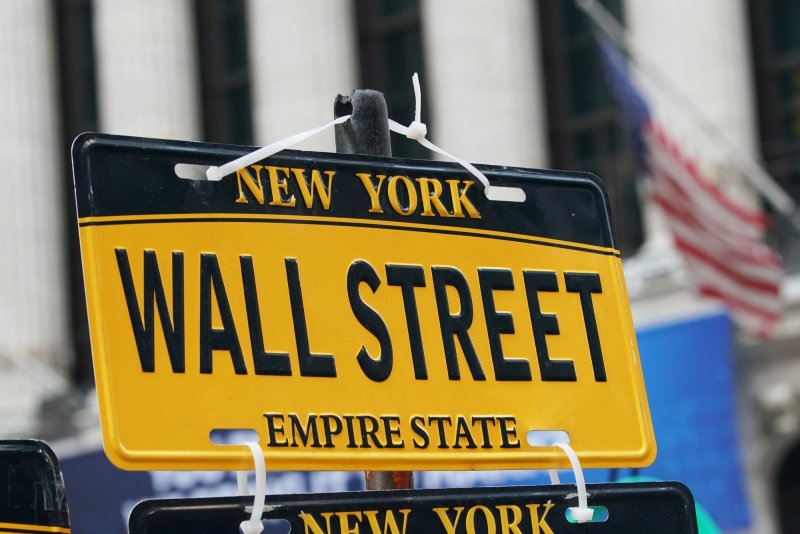A souvenir license plate is seen Monday outside the New York Stock Exchange on Wall Street in New York City. Photo by John Angelillo/UPI |
License Photo
Aug. 20 (UPI) -- The federal agency that insures banks' cash reserves voted Tuesday to re-evaluate an Obama-era rule that was introduced after the financial crisis to discourage U.S. banking institutions from making risky investments that don't benefit their customers.
The Federal Deposit Insurance Corp. voted to let five government agencies review what's known as the Volcker Rule, in an effort to make clear what banks can and cannot do to invest their money.
The Office of the Comptroller of the Currency, one of the five agencies that would review the rule, also voted in favor Tuesday. The Federal Reserve, Securities and Exchange Commission and U.S. Congress -- the other bodies involved in such a review -- still need to decide.
At issue is the specifics of "proprietary trading," which is done to achieve investment returns for the bank rather than the customer. The FDIC voted to clarify the practice and adjust a ban that prohibits banks from making short-term proprietary investments.
The Volcker Rule was implemented as part of the Dodd-Frank Act of 2010, introduced by the Obama administration after questionable movements by multiple banking institutions was blamed for contributing to the financial crisis.
"One of the post-crisis reforms that has been most challenging to implement for regulators and industry is the Volcker Rule, which restricts banks from engaging in proprietary trading and from owning hedge funds and private equity funds," FDIC Chair Jelena McWilliams said. "Distinguishing between what qualifies as proprietary trading and what does not has been extremely difficult."
Any revision of the rule would be considered a loosening of regulations, and a victory for major Wall Street banks like Goldman Sachs.
If passed, banks would have to comply with the amendment by 2021.















